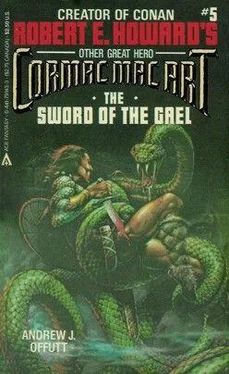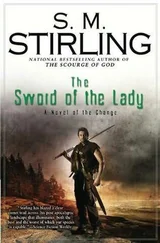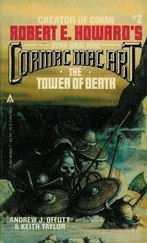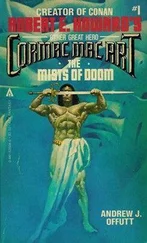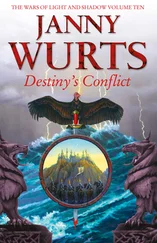Andrew Offutt - The Sword of the Gael
Здесь есть возможность читать онлайн «Andrew Offutt - The Sword of the Gael» весь текст электронной книги совершенно бесплатно (целиком полную версию без сокращений). В некоторых случаях можно слушать аудио, скачать через торрент в формате fb2 и присутствует краткое содержание. Жанр: Фэнтези, на английском языке. Описание произведения, (предисловие) а так же отзывы посетителей доступны на портале библиотеки ЛибКат.
- Название:The Sword of the Gael
- Автор:
- Жанр:
- Год:неизвестен
- ISBN:нет данных
- Рейтинг книги:3 / 5. Голосов: 1
-
Избранное:Добавить в избранное
- Отзывы:
-
Ваша оценка:
- 60
- 1
- 2
- 3
- 4
- 5
The Sword of the Gael: краткое содержание, описание и аннотация
Предлагаем к чтению аннотацию, описание, краткое содержание или предисловие (зависит от того, что написал сам автор книги «The Sword of the Gael»). Если вы не нашли необходимую информацию о книге — напишите в комментариях, мы постараемся отыскать её.
The Sword of the Gael — читать онлайн бесплатно полную книгу (весь текст) целиком
Ниже представлен текст книги, разбитый по страницам. Система сохранения места последней прочитанной страницы, позволяет с удобством читать онлайн бесплатно книгу «The Sword of the Gael», без необходимости каждый раз заново искать на чём Вы остановились. Поставьте закладку, и сможете в любой момент перейти на страницу, на которой закончили чтение.
Интервал:
Закладка:
As the day wore on, the trio that had been all but deified at Tulla Mor was recognized, and that noisily. The “fighting minstrel Celthair” was prevailed upon to strum and sing. Glad Ceann was that he had been at the composing in his head of a few lines concerning the encounter in the Wood of Brosna.
“They closed full fast on every side!
No slackness was there found;
And many a fierce highwayman
Lay bleeding on the ground!"
“Many?” Samaire murmured, smiling. Her brother, undaunted, sang too of the Fair:
“Trumpets, harps, wide-mouthed horns;
Cruisechs, tympanists, without pause-
Poets, balladeers and troupes of
agile jugglers,
Pipers, fiddlers, even outlaws!
Bow-men and flute players,
The host of chattering flyers like elves,
Shouts and loud bellowers
At the Fair do all these exalt themselves! “
Laughter and cheers rose roundabout from throats highborn and low-, and snow-haired oldsters skipped with the young and very young. Bright garments whirled and fluttered. Someone called out happily, and Cormac turned away, for a man did not forget a Connactish accent, not even after twelve years and more.
THE GREAT FAIR
– from O’Curry’s translation of the old Gaelic, with amendments
Listen, O Eire-sons of the monuments!
Ye truth-upholding hosts!
Until you have from me,
from every source,
The history of famed Teamar called Tara.
Tara, the hill of a splendid fair,
With a widespread unobstructed green.
The hosts who came to celebrate it
– On it they contested their noble races.
The renowned field
is the high ground of kings,
The dearly loved of noble clans;
There are many meeting mounds
For their ever-loved ancestral hosts.
To mourn for queens and for kings,
To denounce aggression and tyranny,
Often were the fair hosts in summer
Upon the smooth brow of noble old Tara.
Heaven, earth, sun, moon and sea;
Fruits, fire, and riches;
Mouths, ears, alluring eyes,
Feet, hands, noses and teeth-
The people of the Gaedhil did celebrate
In Tara, to be highly boasted of,
A fair without broken law or crime,
Without a deed of violence,
without dishonour.
On the first day of August without fail,
They repaired thither every third year;
There aloud with boldness
they proclaimed
The rights of every law, and the restraints:
Not to sue, levy, or controvert debts-
To abuse the steeds in their career
Is not allowed to contending racers;
Elopements, arrests, distraints…
That no man goes into the woman’s
Airecht,
That no women go into the Airecht of
fair clean men;
That no abduction is heard of,
Nor repudiation of husbands or of wives.
Whoever transgresses the law of the
assembly
(Which of old was indelibly writ)
Cannot be spared for family connection,
But must die for his transgression.
There are its many privileges-
Trumpets, cruits, wide-mouthed horns,
Cuisigs and tympanists without
weariness,
Poets and lesser rhymesters.
Fenian tales of the Finn, an untiring
entertainment-
Destruction, cattle-preys, Courtships,
Inscribed tablets, and books of trees,
Satires, and sharp-edged Runes…
Proverbs, maxims, royal precepts
And the truthful instructions of Fithal,
Occult poetry, topographical
etymologies,
The precepts of Cairbre and King
Cormac;
The Feasts, with the great Feast of Tara;
Fairs, with the fair of Emania.
Annals are there verified:
Every division into which Eirrin was
divided.
The history of the household of Tara-not
insignificant!
The knowledge of every territory of
Eirrin,
The history of the women of illustrious
families:
Of courts, Prohibitions, Conquests;
The noble Testament of Cathair the Great
To his descendants, to direct steps of
royal rule;
Each one sits in his lawful place
So that all attend to them and
listen, listen.
Pipers, fiddlers, chain-men,
Bow-men, and tube-players;
A crowd of babbling painted masks,
Roarers and bellowers loud!
These all exert their utmost powers
For the magnanimous king of the
Barrow,
Until the noble king in proper measure
bestows
Upon each art its rightful meed.
Elopements, slaughters, musical
choruses,
The accurate synchronisms of noble
races,
The succession of the sovereign kings of
Meath-
Their battles, and their stern valour.
Such is the arrangement of the Fair,
By the lively ever happy host;
May they receive from the gods
A land with choicest fruits!
Chapter Seventeen: Champion of Rath Cumal
Steeds, swords, beautiful chariots,
Spears, shields, human faces,
Dew, fruits, blossoms and foliage,
Day and night, a heavy flooded shore!
– “The Great Fair”; tr. O’Curry
Long ago the Milesian settlers of Eirrin came from Spain, and it was after a Spanish woman that Tara was named. The first Milesian High-king, Eremon, had as wife Tea, the daughter of Spain’s king. After she died and was laid to rest here, the sprawling eminence came to be called “Tea-Mur”: the burying-place of Tea. In other forms the word was Teamhair, and Teamair, and Temair and Tamara-and so eventually Tara.
Called “Tara Hill,” it was more: a great sprawling high place covering full twenty acres. Smaller duns or hills rose on it, and each had become the natural site for a rath or walled enclosure. Seven such raths rose on Tara. Each was like a small town, with imposing buildings that housed the nobles, as well as lesser ones for their relatives, and the necessary outbuildings. Round about pressed close the thatched roofs of the houses of the common folk, which crowded too the plain around the foot of the broad high-land. Every structure was of wood. Some were decorated and strengthened with bronze; a few were actually faced with the ruddy metal.
It was Ollam Fodla in the misty past had given Tara her pre-eminence over the emerald land, by calling together the kings in the first triennial council or parliament: the Great Feis. The Feis-mor had now been held on Tara Hill each third year for a half-score of centuries.
The greatest of the rath-duns was that of the High-king or Ard- righ . Within were one house for each Irish king who came to the Feis, and a grianan or sun-house for their women-folk and attendants. This structure High-king Cormac had raised two hundred years agone, as he had the Stronghold of Hostages and the House of a Thousand Soldiers, and the Star of Bards. In the latter met the filays and seanachies, the brehons and ollams: poets, historians/storytellers, judges and learned doctors of law and letters.
Читать дальшеИнтервал:
Закладка:
Похожие книги на «The Sword of the Gael»
Представляем Вашему вниманию похожие книги на «The Sword of the Gael» списком для выбора. Мы отобрали схожую по названию и смыслу литературу в надежде предоставить читателям больше вариантов отыскать новые, интересные, ещё непрочитанные произведения.
Обсуждение, отзывы о книге «The Sword of the Gael» и просто собственные мнения читателей. Оставьте ваши комментарии, напишите, что Вы думаете о произведении, его смысле или главных героях. Укажите что конкретно понравилось, а что нет, и почему Вы так считаете.
